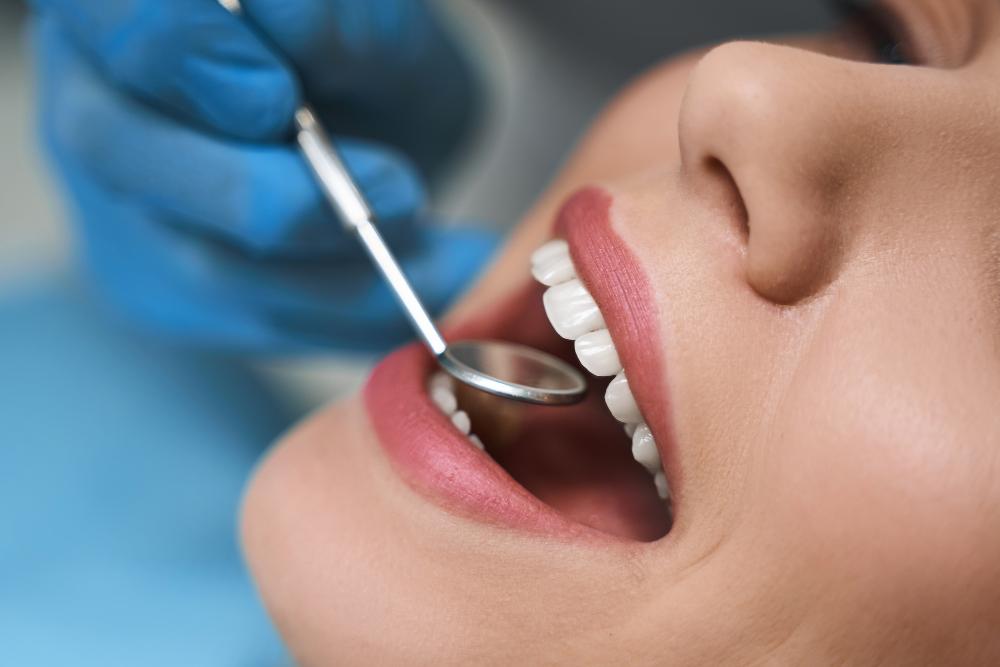Dental veneers have taken the cosmetic dentistry world by storm, offering a brighter, more uniform smile to countless individuals. As people consider this option, a frequent question arises: What happens to the original teeth under veneers?
Understanding the Basics of Dental Veneers
Dental veneers are thin shells made of composite material, designed to cover the front surface of teeth. These veneers give teeth a more classically shaped look, addressing issues like discoloration, cracks, chips, or misalignment. The primary reason veneers are so beloved in the dental community is their ability to provide a dramatic transformation in a relatively non-invasive manner. By adhering to the natural teeth, veneers offer both aesthetic and functional improvements, ensuring that the smile is not only beautiful but also functional.
The Process of Getting Dental Veneers
The journey to getting dental veneers starts with a dental consultation. Here, the dentist evaluates if veneers are the right solution for the individual’s dental concerns. Once deemed a suitable candidate, the process can commence.
To prepare for veneer placement, a small amount of enamel from the tooth’s surface is removed. This step ensures that the veneer fits seamlessly onto the tooth and doesn’t appear bulky. After this, an impression or mold of the patient’s tooth is taken. This mold serves as a guide for creating the custom veneer in a dental lab.
In the interim, between the enamel removal and the placement of the permanent veneer, patients might wear a temporary veneer to protect the prepared tooth. Once the custom veneer is ready, it’s time for the final placement. The dentist cleans, polishes, and etches the tooth to roughen it, ensuring a strong bonding process. After applying special cement to the veneer, it’s placed on the tooth. Once correctly positioned, a special light beam is used to activate the cement, causing it to harden and securely attach to the veneer.
After the procedure, the natural tooth remains under the veneer, slightly altered from its original state but protected by the veneer shell. Regular dental check-ups and proper oral hygiene ensure that the veneer and the underlying tooth stay in optimal health.
Common Problems and Complications with Veneers
Dental veneers, while transformative, can sometimes come with a set of challenges or complications. Knowing these potential issues helps individuals make informed decisions and take necessary precautions.
One of the common concerns is veneer sensitivity. After the procedure, patients might experience increased sensitivity to hot or cold temperatures, primarily because a layer of enamel was removed. This sensitivity often subsides after a few days, but if it persists, it’s wise to discuss it with a dentist.
Another common issue is veneers detaching or falling off. This problem can arise from improper bonding or excessive pressure on the veneer, like biting hard foods or objects. There’s also the possibility of veneers chipping or cracking, especially if made from composite resin.
Mismatched colors between veneers and natural teeth can also be a point of concern. Over time, while veneers resist staining, the natural teeth might discolor, leading to a noticeable difference in shade.
How to Care for Your Teeth with Veneers
Maintaining the health and aesthetics of teeth with veneers requires careful attention and a few specific steps.
First and foremost, practicing good oral hygiene remains vital. Brushing twice a day with a non-abrasive toothpaste, flossing daily, and regular dental check-ups help keep both the veneers and natural teeth in good condition. Using a soft-bristled toothbrush is recommended to prevent scratching the veneer surface.
Dietary habits play a role, too. It’s wise to avoid or limit foods and beverages known for staining, such as coffee, red wine, and berries. This ensures that the natural teeth, which are still susceptible to staining, remain a consistent color with the veneers.
Being mindful of hard or crunchy foods is essential as well. Biting down on hard candies, ice, or nuts can risk chipping or dislodging a veneer. Similarly, habits like nail-biting or opening packages with teeth should be avoided. For those who grind or clench their teeth, considering a nightguard is a smart move. This protective device can prevent undue pressure or damage to the veneers during sleep.


